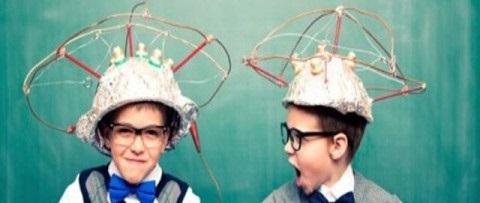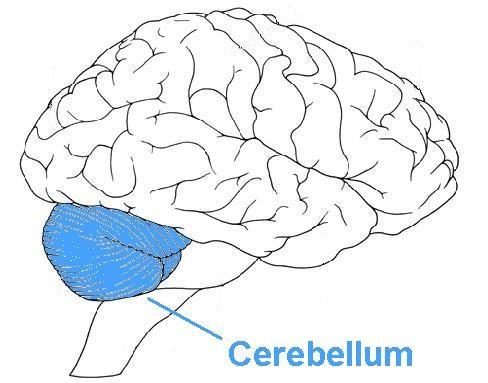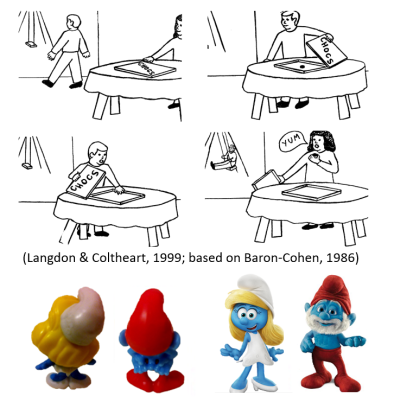Social Brain Project: Reading the brain and mind of people (Prof. Dr. Frank Van Overwalle)
Watch short 15-minutes talks on:
Links
Gezocht: Proefpersonen voor Breinstudies
Tests on tablet or PC for testing social sequential cognition in patients
Looking for internships at our lab? & Looking for Marie-Curie Fellowships in BBCO?
The brain brought to you: Breinwijzer

What so we do?
"Women like to shop" and "Americans are fat" are examples of stereotypes. "My friend is handsome" and "My mother is anxious" are judgments about people we know well, which often also are quite accurate. We use stereotypes judgments about people to navigate through the social world. But what happens when we get information that goes against these stereotypes? Are all stereotypes and judgments resistant to change and how can we investigate this? How are stereotypes and judgments made in our brains? Where are the brain areas that make social judgments, and where are the groups and people we judge? How do we control our social behavior and the social context, and how do group norms have an impact on us? These are some of the questions that this project tries to answer.
The project is supported by researchers specialized in social neuroscience who study the mystery of the social brain. In social neuroscience, behavioral experiments and state-of-the art neuroimaging techniques like fMRI or TMS are used to explore which parts of our brains are active during certain social and cognitive processes. This tells us how we deal with other people, and the underlying mechanisms in our brains. For instance, what mechanisms ensure that we understand our own behavior and that of others in terms of their thoughts, intentions, interests, character traits.
Answers to these questions can provide information on a wide spectrum of topics such as mind reading (how spontaneous people infer goals and desires by observing them), autism (the lack of understanding of others) and paranoia (seeing too many hidden motives in others). Where we store information about traits and other people can tell us much about potential effects of brain damage by an accident or a stroke, and what impact this has on the social functioning of the patient.
The most important research questions in this project currently are...
The role of the cerebellum in social cognition: How the little brain gets a bigger role
Although enormous progress has recently been made in understanding the importance of the brain in social cognition, the role of the cerebellum has been long ignored. However, recent studies and meta-analyses in our lab during the last 5 years show that the cerebellum plays a critical role in social cognition, especially when we have to infer the mental state of other persons, that is, when we “read” their minds. Recent neuroimaging studies in our lab demonstrated that the cerebellum plays a preferential role when identifying and predicting sequences of social actions, that involve mental state inferences of others. By building up knowledge about social action sequences, social interactions with others become more predictable and smooth, resulting in more enjoyable interactions. Recent studies in our lab revealed this sequencing function in understanding and predicting several mental states by others, such as their beliefs, traits and goals.

Are patients with cerebellar lesions bad in in social cognition and the recognition of emotions?
The cerebellar cognitive-affective syndrome entails several deficits after lesions to the cerebellum, including deficits in affect. This syndrome challenges previous views of the cerebellum as being responsible solely for motor functions. More recent studies in the context of this project even suggest that patients with cerebellar lesions are impaired in tasks requiring social cognition (Van Overwalle, Baetens, Mariën, & Vandekerckhove, 2014, 2015). In this study, we want to understand these deficits further. However, studies on social and affective deficits are very rare. The project attempts to gain more insight into social and affective deficits in cerebellar patients.
Tests on tablet or PC for testing social sequential cognition in patients and neurotypical individuals
Recent research indicates that patients with cerebellar or autistic impairments may suffer from deficiencies in their capacities to detect and generate appropriate social action sequences. We have now developed and validated various tests that diagnose these social action sequence capacities:
Software requirements:
|

|
If you would like to use one of these tests, please contact Frank.VanOverwalle@vub.ac.be
The Group in the Brain
Jeroen Delplanque (Supervisor: Frank Van Overwalle)
Just like persons, do we also hold representations of groups in our brain? The brain of humans has evolved to learn to live together in large groups with a complex cooperation. To achieve this goal, brains were needed that could remember the most reliable ingroups and dangerous outgroups. Where is this knowledge about groups located in the brain? Is this knowledge encoded in the same areas as representations of individuals?
Clinical Experimental Research (Prof. Dr. Natacha Deroost)
Clinical Experimental Research focuses on the experimental study of psychopathology. Our main research topics are cognitive dysfunction in neurodegeneration and affective disorders.
Implicit learning
We investigate the role of selective attention and attentional control in implicit learning processes as well as the representations (perceptual or motor) underlying implicit sequence learning. Another line of research focuses on the consolidation of implicit sequence knowledge. We also address the development of explicit knowledge during implicit sequence learning.
Cognition in Parkinson's disease: deficits in automaticity and control
In collaboration with Eric Kerckhofs of the Department of Neurological Rehabilitation
Our aim is to develop an integrative empirical model that predicts the development of cognitive decline in Parkinson's disease using a fine-grained analysis of cognition. More particularly, we focus on how disturbances in automaticity and control contribute to cognitive deterioration in Parkinson's disease. Our long-term goal is to identify evidence-based predictors for cognitive rehabilitation based on innovative compensation strategies and neurostimulation (tDCS).
Affective disorders: repetitive negative thought
We investigate how repetitive negative thought (RNT) and information processing contribute to affective symptoms. More specifically, we determine to what extent worrying and rumination are related to abnormalities in attentional control and memory.
